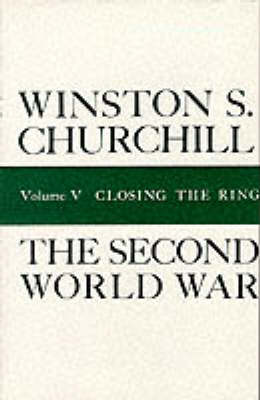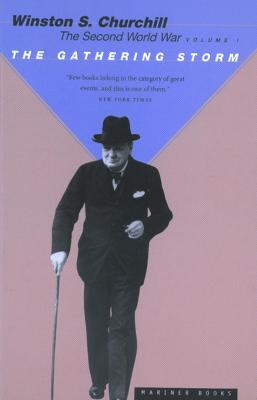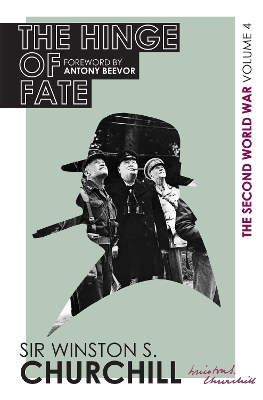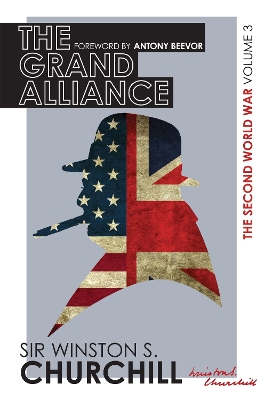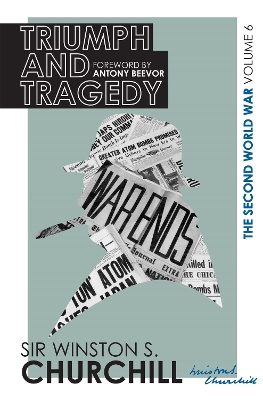THE SECOND WORLD WAR
6 total works
CLOSING THE RING covers the decisive 12 months between June 1943 and June 1944. Command of the seas had returned to Allied hands, the U-boats were mastered and the Luftwaffe beaten. These achievements made possible the 'closing of the ring' which was to extinguish Axis resistance and eventually end the war.
The danger was no longer defeat but stalemate. Russian armies were driving the German invaders back into their own country, Italy was freed from the fascist yoke and Africa was cleared. However, before the Allies lay the formidable task of invading the aggressors in their own land. Frankly and unreservedly, Sir Winston Churchill reveals the tensions and divergences of opinions concerning how best to achieve this among the three great partners, Britain, USA and Russia.
Hanging the chronicle and discussion of great military and political events upon the thread of his personal experiences, Sir Winston Churchill provides an immediate and current account of all the tremendous events of the coming of war as they unfolded.
THE GATHERING STORM explores the events of the period between the end of the Great War and the beginning of the Second World War and details Sir Winston Churchill's belief that the latter should never have been allowed to occur. Mankind, he asserts, must learn from the lessons of the past as 'There was never a war more easy to stop than that which has just wrecked what was left of the world from the previous struggle.'
THE HINGE OF FATE marks in Sir Winston Churchill's words, 'the turning-point of the Second World War.' It details a period during which almost uninterrupted defeat gave way to almost unbroken success for the Allies.
While the Afrika Korps advanced almost to the outskirts of Alexandria and the Japanese struck by land and by sea, despair came to all but the most resolute. However, from this nadir there followed an ever-steady climb. Rommel was thrown back and defeated at Alamein. The British fought shoulder to shoulder for the first time with their American allies in North Africa and the tide turned in the Pacific.
For eight grim months Great Britain stood alone as the only European power still carrying on the struggle against Nazi Germany. Eight months in which the Luftwaffe tried and failed to drive the RAF from the skies; eight months in which the Nazi fleet tried to starve Britain into submission.
Focusing on the period from May 1940 to the end of the year, THEIR FINEST HOUR embraces Sir Winston Churchill's first days as Prime Minister, France's defeat, British troops' mass evacuation from Dunkirk and the uneasy summer when the enemy was daily expected upon our shores. However, it also features the first gleams of light as the danger of invasion faded and the year closed with Desert Victory.
The descriptions of these times and events, both desperate and hopeful, are drawn from the pen of the man who shaped them and who led his people in resistance to every challenge, bringing the period to a close with the first victorious counter-attack.
Dealing with war on a giant scale, THE GRAND ALLIANCE focuses on events as Britain, after fighting a desperate battle alone, was joined in the struggle against the enemy by Soviet Russia and the United Sates.
Hitler's invasion of Russia brought to an end a period of almost exactly a year during which Britain and her Empire had stood alone. Six months later, the United States, attacked by Japan, joined the war and the Grand Alliance was born. It was a momentous turn in the course of the war and Sir Winston Churchill noted, 'United we could subdue everybody else in the world. Many disasters, immeasurable cost and tribulation lay ahead, but there was no more doubt about the end.'
Concluding Sir Winston Churchill's narrative of the Second World War, TRIUMPH AND TRAGEDY spans the period from the D-Day landings of June 1944 to the surrender of all Allied enemies 14 months later. In this period, Nazi Germany was crushed, partitioned and occupied; Soviet Russia established herself in the heart of Western Europe and in Japan, the first atomic bombs were cast.
Composed from the documents and speeches composed under the daily ordeal rather than being informed by hindsight and subsequent occurrences, TRIUMPH AND TRAGEDY gives the truest picture of the momentous events that rocked the world during these fateful months.
